|
Pebble 1. Vehicle Pebble 2. Angle Pebble 3. Road Pebble 4. "Pied Beauty," by Gerard Manley Hopkins (1844–1889)
Glory be to God for dappled things – For skies of couple-colour as a brinded cow; For rose-moles all in stipple upon trout that swim; Fresh-firecoal chestnut-falls; finches’ wings; Landscape plotted and pieced – fold, fallow, and plough; And all trades, their gear and tackle and trim. All things counter, original, spare, strange; Whatever is fickle, freckled (who knows how?) With swift, slow; sweet, sour; adazzle, dim; He fathers-forth whose beauty is past change: Praise him. Last weekend I was at a mountainy hideout near Taos, New Mexico, and two teacher friends were conversing about children's books and particularly the work of David Wiesner, who is famous for his picture books that tell quirky stories without words. One of them, Sector 7, centers on a cloud factory in the sky. Tuesday is a wordless tale of flying frogs at night. Good stuff.
I found myself passionately praising a book from grade school that has remained close to my mind--or perhaps I should say under it. In Chris Van Allsburg's The Mysteries of Harris Burdick (1984), the author tells us that the titular gentleman approached his friend Peter Wenders with a set of illustrations for his stories--but not the stories themselves. Each picture bore a title and a caption. Wenders was intrigued, and Burdick promised to return the next day with the stories. But he never did. Wenders never heard from him again. So Van Allsburg's book is just the pictures, each with its title and caption. The story is left to the reader. It's an amazingly simple and brilliant conceit. You read a book, and in doing so, you write the stories. You can't help it; the pictures are so evocative that one's imagination ignites. Some are funny, all are odd, and a few are beautifully mysterious. One of my favorites featured a boy in the woods, looking at a creek by whose banks sits a lovely harp. The title is simply "The Harp." The caption? "So it's true, he thought. It's really true." Fantastic. In 2007 I wrote a silly but generally accurate blog post drawing a metaphor between my sense of creative impulse and the walk-through-walls code from the video game Final Fantasy 2 (1991). The code's significant bugs bored holes in the game's programming, giving the player access to a strange, dreamlike underworld of mostly uncontrollable scenes and images. The normal gameplay proceeded in a steady narrative, and as a youngster I was both unnerved and fascinated by this mysterious break in the linearity. The Mysteries of Harris Burdick is a more elegantly pronounced influence on the same aspect of my creativity. In my grade-school class we were encouraged to write our own stories based on the pictures. I'll admit that the suggestion of a story, for me, is more entrancing than the details of the story, even if I'm the one who gets to write it. I've said of other cultural products (to name a few TV series,Twin Peaks and LOST and more recently Top of the Lake) that it seems the mystery's solution is inevitably disappointing. Give me the mystery itself. Don't solve it. Keep the answers. Give me the questions. This is why I've always taken to the paintings of Rene Magritte. They are only questions. I might even suggest that this is why I became a composer rather than, say, a fiction writer. I prefer to explore, to map, to convey the atmosphere of a specific moment, rather than plotting a series of them. If you work with youngsters, or even if you don't, check out The Mysteries of Harris Burdick. This weird little book really helped make me who I am and love what I love. Improvisation has always been the beginning of composing for me, and when I allow myself to write truly intuitively, often I get my best music. Not always. But often. Nonetheless, when I'm writing intuitively and improvisationally, Truman Capote's famous quip about Jack Kerouac always rings in my ears: "That isn't writing at all; it's typing." I was thinking a bit about Kerouac's work a year ago, around the time I wrote Outer Channel. While composing I was inspired by Kerouac's Belief and Technique for Modern Prose, a list of thirty characteristically oblique writing tips. ("Believe in the holy contour of life"; "Like Proust be an old teahead of time"; "Something that you feel will find its own form"; "Work from pithy middle eye out, swimming in language sea.") Outer Channel is somewhat improvisational, at least at first; it flows easily between ideas. That said, I did apply some focus, and I didn't write it from top to bottom. I recorded myself improvising some music, transcribed some of it, picked some of that out, placed it next to other music, moved it around, took out some notes and added some others (a process often referred to as "editing"). The piece is named for a lovely passage in The Dharma Bums.
Kerouac was not an editor, and I've loved him for that. I think he's somewhat out of style these days, or at least it seems I haven't met many Serious Writers working today who admit his influence. I suppose a lot of them/us see him as a teenage inspiration subsequently outgrown. I too read him in high school, but I had my perfect On the Road experience at age 24, during a solo Colorado mountain-climbing road trip, listening to the book on CD. (It's worth pondering whether such writing naturally works better aurally than it does on the page--conveyed in sound waves it is more kinetic, not such a static object easily encumbered by pretensions toward perfection.) That same year I named a song after Desolation Angels, but I didn't actually read the book. I started it and pretty hastily quit. So that one is still waiting for me. Along with Big Sur and Visions of Cody and a bunch more. (This week I learned that a German college student worked through On the Road and converted it, drolly, into a 45-page set of Google Maps driving directions. The document is more richly, ambiguously thought-provoking than one would expect.) So then just this last fall, something belated happened: I discovered Henry Miller. Someone mentioned Big Sur and the Oranges of Hieronymus Bosch, which I thought was such a fantastically wonderful title that I simply had to buy the book. Now I'm into his classic Tropic of Cancer. Miller is often cited as an influence for Kerouac and the Beat Generation writers. His prose offers a similar exuberance, and a similar eye shines on his personal life as an inspiration. And he gets gonzo, Miller, but he writes with a certain precision. He likes a sentence in a few specific ways. He paints with sticks, but he also gets the chisel out, sometimes. In the opening section of Tropic of Cancer, he writes the following: "I have made a silent compact with myself not to change a line of what I write. I am not interested in perfecting my thoughts, nor my actions. Beside the perfection of Turgenev I put the perfection of Dostoevski. (Is there anything more perfect than The Eternal Husband?) Here, then, in one and the same medium, we have two kinds of perfection. But in Van Gogh's letters there is a perfection beyond either of these. It is the triumph of the individual over art." (It should be said that, in spite of the compact, he did rewrite Tropic of Cancer several times before publishing it. I read in an interview that he did edit, but not at once, and not in every case.) So: what sort of perfection are we looking for, as artists? And maybe more crucially, are the sorts mutually exclusive? I've framed this question before in the terms of Heisenberg's Uncertainty Principle. Is a work of art like an electron? When we take the time to precisely measure its position, do we lose all knowledge of its momentum? Does our first effort to measure a piece of music somehow irrevocably change it? We all must answer these questions for ourselves. I suppose I have to answer them every time I sit down to write a new piece. But at least we can recognize that two perfections exist, that beside the tidy, traditionally recognized one of exactitude and rigor there sits another, shaggier perfection of inspiration and kinetic force. Beside the perfection of Ravel I put the perfection of Ives; next to the perfection of Miles Davis I place that of Han Bennink. Or maybe, following Heisenberg, we should admit that perfection does not exist, that we simply, mathematically, cannot know everything about life or about art. That might be much more liberating. To admit that perfection is only a theoretical construct, not something that physically exists in nature, and to continue to do our best work anyway; that might be the triumph of the individual over art. Did you know that January is named for Janus, the Roman god of doors? I didn't know that until yesterday. I was fortunate enough this year to spend Janus' month at the Brush Creek Arts Foundation in Wyoming, a place where sunsets look like this over white-blue snow: And trees grow out of rocks: And the clouds are weird and there is space enough to think, and decisions clarify themselves: I was working on a few different projects, but one main piece carried me through the month. I worked on it very easily. Consistently, assiduously, but easily. I composed a certain amount every morning, and then--and this is the part you don't hear about often enough--I insisted upon being done, and feeling okay about being done. I wrote one page of notes, and then I closed the notebook. The next day I wrote another page of notes. I did this every day. Always one page. No more.
Why? Well, let's see: here are a couple of links about the Japanese author Haruki Murakami and his lifestyle and work routines. In the second article he starts by talking about talent for a while. The concept of "talent" is as useless as it is dangerous. It has killed a lot of artists. Let's remember that it's just a concept, that it is theoretical, that it is not measurable and that its actual existence in the world cannot be proved; let's ignore that talk. He goes on to talk about focus. I don't want to talk about that, either. We hear these two things valorized a lot, and we often praise those people we see as genius-people for possessing them. What are we ignoring? What else does the work require? Murakami's third topic, for me, is where it gets good: endurance. There's something I can believe in. You just have to keep doing something, and you have to have the fortitude, the stamina, the level of obsessiveness, or the simple stubbornness to just not stop. We should praise people less often for their "talent," whatever that is, and more often for keeping after it. There's more, though. In that first article Murakami talks about repetition. He gets up at 4, he writes, he runs, he reads, he goes to bed. And he does that every day. "The repetition itself becomes the important thing; it’s a form of mesmerism. I mesmerize myself to reach a deeper state of mind." The repetition itself becomes the important thing. There is tremendous liberation in accepting a creative routine. It's taken me this long to really learn this. If you're remaking the world every single day, sitting down at the desk or the piano and saying, "…ok. What should I work on?" -- this takes a lot of energy, and it prevents you from sinking to a deeper, easier, more creative mind-state. The work is always harder if you're operating on the surface up there. You have to make some of those decisions in advance for yourself, and stick to them--not because you owe anything specific to the world, posterity, the tradition, or your own "talent," but because it's easier that way. Working this way for just one month, I did some of the easiest, deepest, most fun and rewarding composing I've done my whole life. If it isn't obvious: knowing when to stop, and then choosing to do so, is a crucial aspect of endurance. One more thing: "When I start to write, I don't have any plan at all. I just wait for the story to come. I don't choose what kind of story it is or what's going to happen. I just wait." -- guess who. I did that, too. I started writing music with no plan. The last day of the residency, I wrote a page of notes with a double bar at the end. The piece was over. I'm not going to say that everyone should write pieces this way, but I sure as hell loved it. No plan, no responsibility to any extramusical schemes or musical materials. Just some music, every morning. I got up in the morning and wrote what I wanted, and then the next morning I did that again. It was important for me to accept the first idea I had. When you're improvising a scene with another actor, the famous rule states, you can't say "no" to any question they throw your way. You say "yes, and." You take what they give you and build on it. Saying "no" stops the flow. For years I've made awful faces and mimed vomiting whenever a composer mentions the "muse," but in this case it was useful for me to think of writing this piece as doing a scene with the muse. We were on stage; people were watching. When she tossed me an idea, I couldn't say no. I felt, for this piece anyway, that to reject any idea was to reject all of them, was to reject music itself, was to meet an immediate dead end. I had to say yes to everything. I don't care how "good" the piece is. Writing it was joyful and buoyant. I'll bet you that carries, when the music is heard. It's a long piece. I won't say more about it right now. Ok, one more thing, one more thing. "[Murakami] has an unusual attitude to endings: he doesn't really care for any kind of conclusion. The journey is more important than the destination." |
A Selection• Gone Walkabout
• Migration • Music as Drama • Crossroads II • 10 Best of 2014 • January: Wyoming and the Open • February: New Mexico and the Holes • Coming Up • Notes on The Accounts • Crossroad Blues • Labyrinths Archives
October 2020
|

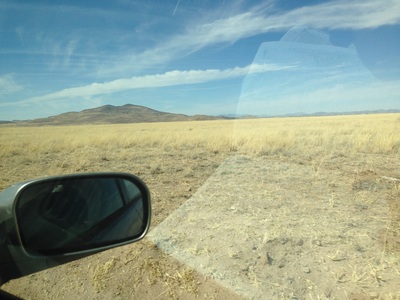

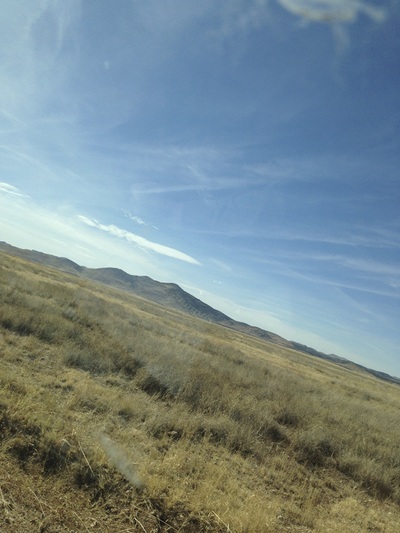

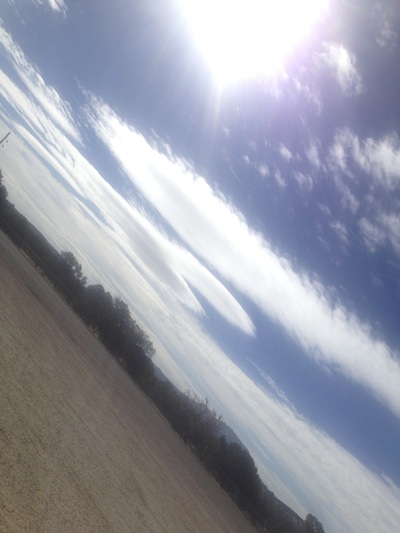
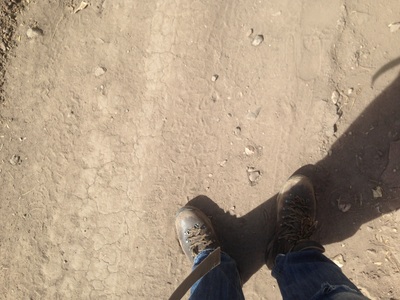

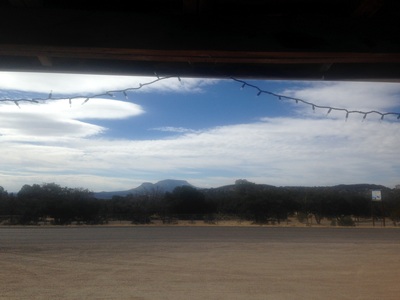
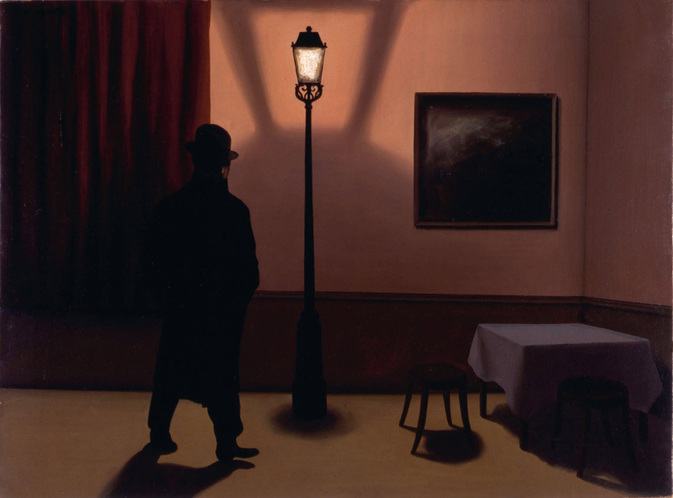
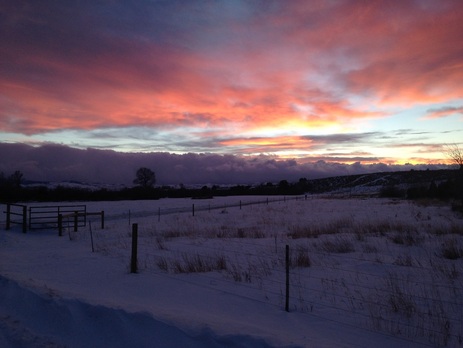
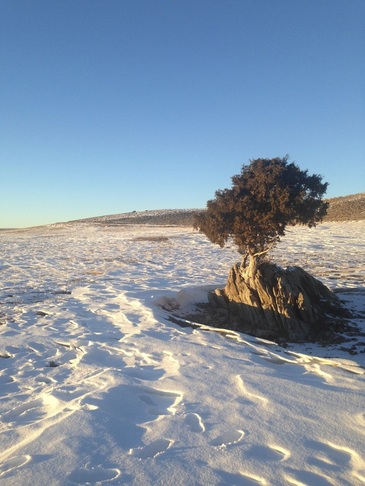
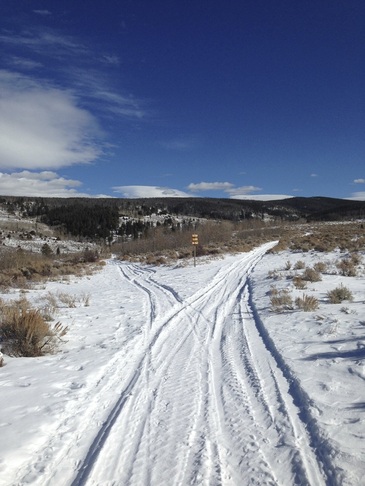

 RSS Feed
RSS Feed